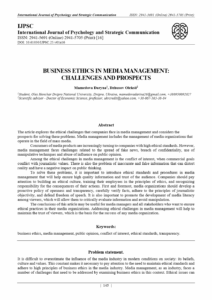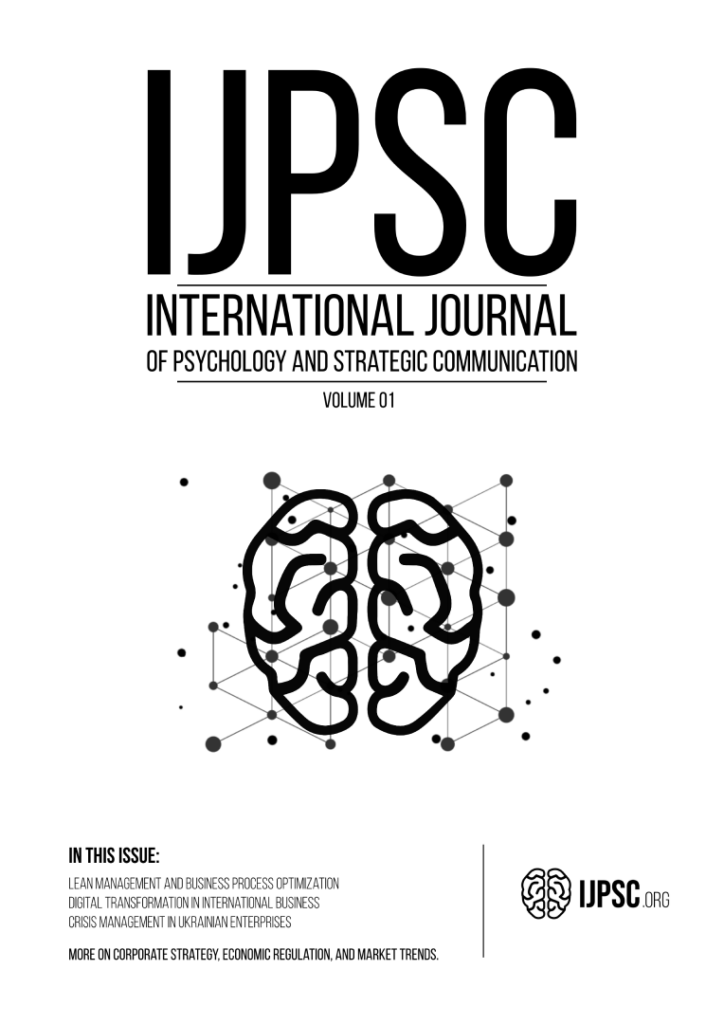Business Ethics in Media Management: Challenges and Prospects
 Article Title
Article Title
Business Ethics in Media Management: Challenges and Prospects
Authors
Mamedova Daryna
Student, Oles Honchar Dnipro National University, Dnipro, Ukraine
Email: mamedovadarina26@gmail.com
Dzhusov Oleksii
Scientific Adviser – Doctor of Economic Science, Professor
Email: ukrcredit@yahoo.com
Journal Details
Journal: International Journal of Psychology and Strategic Communication
ISSN (Online): 2941-5691
ISSN (Print): 2941-5705
DOI: https://doi.org/10.61030/IJPSC.25.v01a16
Abstract
The article explores the ethical challenges that companies face in media management and considers the prospects for solving these problems. Media management includes the management of media organizations that operate in the field of mass media.
Consumers of media products are increasingly turning to companies with high ethical standards. However, media management faces challenges related to the spread of fake news, breach of confidentiality, use of manipulative techniques, and abuse of influence on public opinion.
Among the ethical challenges in media management is the conflict of interest, when commercial goals conflict with journalistic values. There is also the problem of inaccurate and false information that can distort reality and have a negative impact on public thinking.
To solve these problems, it is important to introduce ethical standards and procedures in media management that will help ensure high-quality information and trust of the audience. Companies should pay attention to building an ethical culture, training their employees in the principles of ethics, and recognizing responsibility for the consequences of their actions. First and foremost, media organizations should develop a proactive policy of openness and transparency, carefully verify facts, adhere to the principles of journalistic objectivity, and defend freedom of speech. It is also important to promote the development of media literacy among viewers, which will allow them to critically evaluate information and avoid manipulation.
The conclusions of this article may be useful for media managers and all stakeholders who want to ensure ethical practices in their media organizations. Addressing ethical challenges in media management will help to maintain the trust of viewers, which is the basis for the success of any media organization.
Keywords
business ethics, media management, public opinion, conflict of interest, ethical standards, transparency
How to Cite This Article
Mamedova, D., & Dzhusov, O. (2025). Business Ethics in Media Management: Challenges and Prospects. International Journal of Psychology and Strategic Communication, 1(16).
https://doi.org/10.61030/IJPSC.25.v01a16
Full Article (PDF)
https://ijpsc.org/journal/v01/16.pdf
Metadata
- DOI: https://doi.org/10.61030/IJPSC.25.v01a16
- Published: 2025
- License: CC BY 4.0 (if applicable)



